Last month we explored the phenomenon of the once popular bowling alley disappearing from the San Jose landscape. This month we recognize local bowling legend Rokuro “Fuzzy” Shimada. Fuzzy was the sixth son of a Japanese immigrant, and came from a large sports-loving family. Born in Vacaville on October 26,1921, Fuzzy was given the name Rokuro, with “roku” being Japanese for the number six. In the fall of 1936, the Shimada’s moved to Santa Clara. The family leased property and grew strawberries on Reed Avenue near what is now Lawrence Expressway.
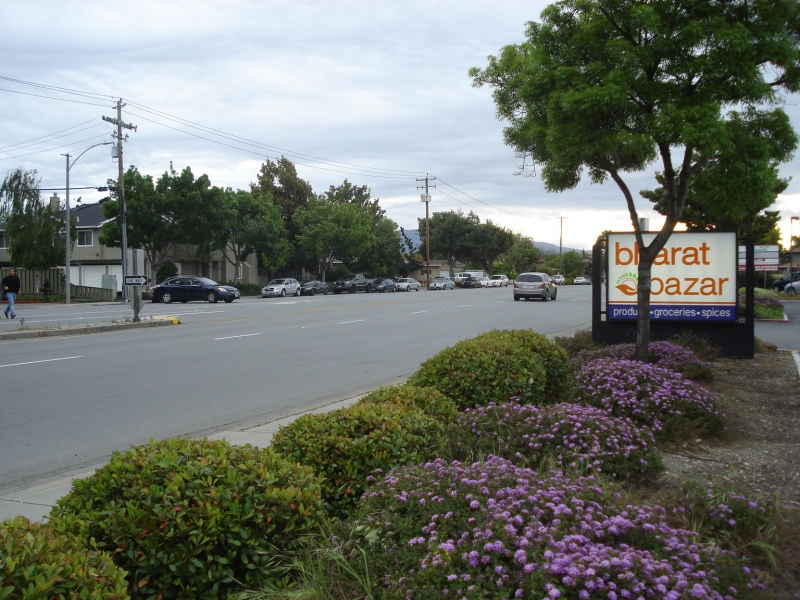
It had been during grammar school that Fuzzy had picked-up the moniker that would remain with him for life. Fuzzy’s bowling teammate, Gish Endo, revealed that Fuzzy’s second grade teacher had complimented him on a new, “fuzzy” sweater and that his classmates called him Fuzzy from that day on. Two of Fuzzy’s older brothers (he had five), Frank and Mori, both played for the local Asahi baseball team, but Fuzzy was drawn to bowling. After graduating from Santa Clara High School in 1941, Fuzzy not only continued to work on the family farm, but began working nights at the San Jose Valley Bowl, setting pins for four cents a game. On one occasion prior to the Japanese Internment in May of 1942, Fuzzy was arrested for remaining at the bowling alley past the curfew that had been imposed on Japanese Americans.
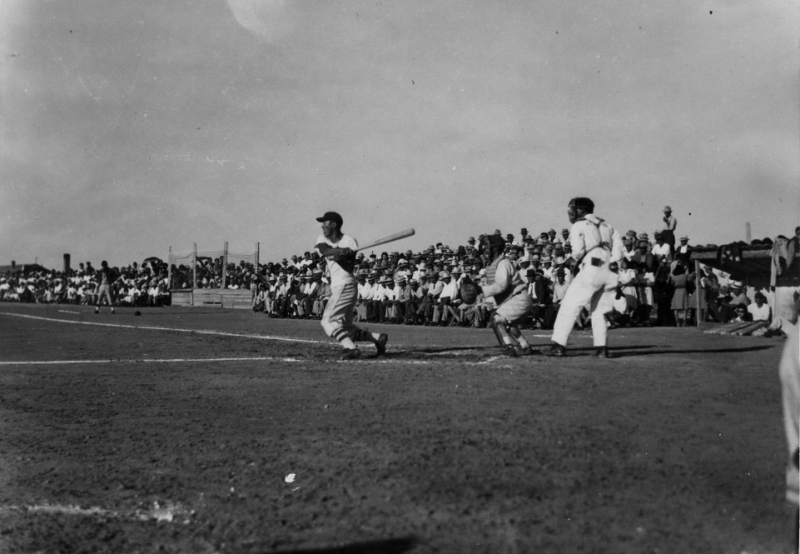
While at the Heart Mountain Relocation Center during World War II, Fuzzy served as a fireman and a commissary worker. Like his brothers, he was also very involved with sports, playing baseball and coaching a high school basketball team. At Santa Anita Assembly Center, Fuzzy’s brothers, Mori and Frank, had put together a strong baseball team called the Azucars. Made up of younger Asahi players, the team became the Zebras at Heart Mountain. With the need for many competitive teams, Fuzzy joined the Amateurs as a catcher, often playing against his brothers on the Zebras. Though the Zebras were the perennial champions, the Amateurs were strong contenders, even playing the Zebras for the 1945 Heart Mountain championship. Early in the 1944 season, Fuzzy led the league with a .628 batting average and finished the season with a .310 batting average.
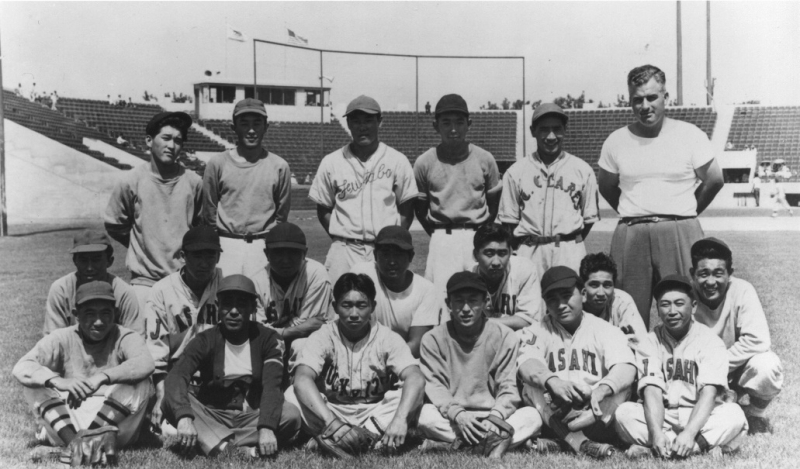
Following World War II, Fuzzy eventually returned to Santa Clara. When Mori and Frank reestablished the Zebra baseball team in San Jose, Fuzzy joined the team, playing through 1950. He also tried to join a bowling league, but wasn’t allowed to due to his Japanese heritage. It was because of this that Fuzzy helped to form the San Jose Nisei Bowling Association, which currently has over 400 bowlers forming eight leagues in the city. Fuzzy became the first Nisei (second generation Japanese immigrant) to bowl a 300 game in organized play in 1949 at the San Carlos Bowl. In 1953, the ABC (American Bowling Congress) overturned their Caucasian-only policy, finally allowing Fuzzy to take-on top-ranked players. The ABC is currently known as the United States Bowling Congress (USBC).
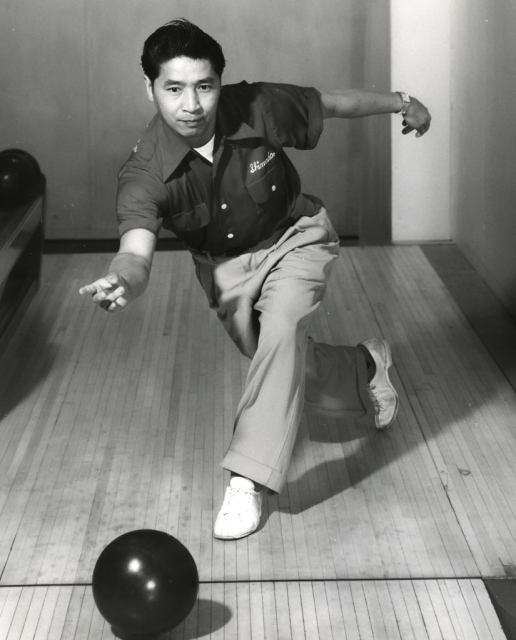
In 1956, Fuzzy moved to San Jose with his wife Masako and newborn son Steve. Fuzzy eventually opened San Jose Bowling Supply on Santa Clara Street with his friend, Sal De Luna. He later opened F & S Bowling and Trophy Supply in Mountain View, which he operated with his son Steve (until 1998). Fuzzy joined the PBA (Professional Bowling Association) in 1959, where he competed in events into his mid-70s. In 1961, Fuzzy was drafted by the National Bowling League’s Texas Broncos and was later traded to the Fresno Bombers. In 1974, Fuzzy helped establish the JANBA (Japanese American National Bowling Association), which includes bowlers from across the country.
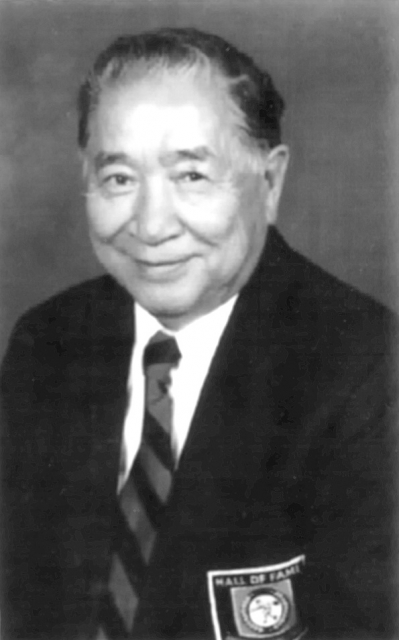
Fuzzy’s accomplishments in bowling include finishing in the top-10 five times in ABC tournaments, earning three Northern California Match Play Crown titles from the Bowling Proprietors Association of America, and winning thirteen JACL-JANBA tournaments. He was elected to the Santa Clara Bowling Association’s Hall of Fame in 1986 and both the ABC and JANBA Halls of Fame in 1997. About 2002, Fuzzy and second wife Bonny retired to her home state of North Carolina. Living in Ayden, Fuzzy soon became a fixture at the AMF East Carolina Bowl in nearby Greenville. Fuzzy passed away on February 8, 2007 at the age of 85.
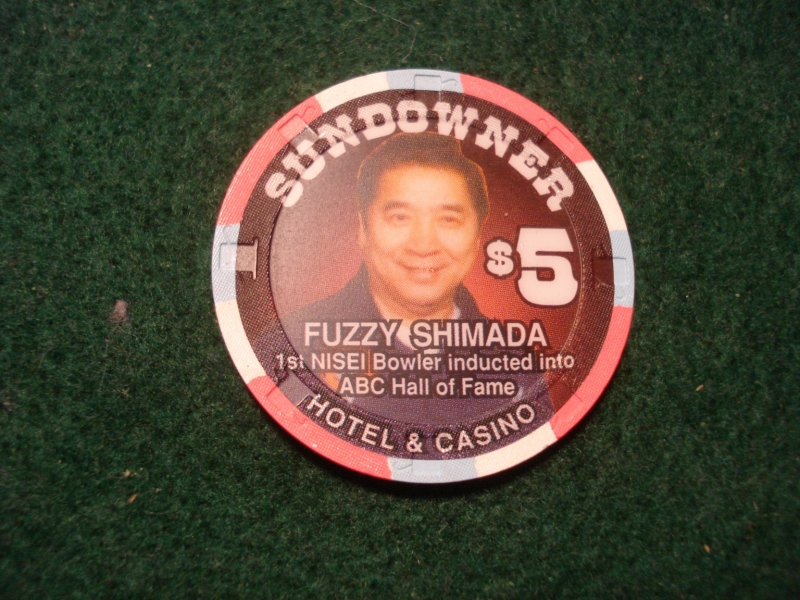
Further Reading in the California Room
- California Room Index: Bowling
- Looking Back: Where Have all the Bowling Alley's Gone?
- California Room Index: Japanese Americans
- From Asahi to Zebras by Ralph M. Pearce
- United States Bowling Congress website


Add a comment to: Looking Back: Fuzzy Shimada, a Local Bowling Legend